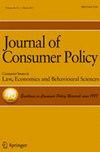网络社会的房地产交易:平台房地产、住房行动主义与公私权力的再尺度
IF 1.6
Q3 BUSINESS
引用次数: 0
摘要
技术正在迅速改变土地所有权和住房交易的格局,创造了新型的消费者风险和新的监管挑战。随着市场、法律体系和住房消费者驾驭“平台房地产”(或“PropTech”)的新机遇和风险,为房地产交易提供物质背景和法律框架的基本土地法、政策和实践,以及必须理解消费者风险和监管的基础,需要“重新调整规模”。在本文中,我们借鉴了我们早期的研究成果,提出了一个理论框架,该理论用于分析复杂的、大规模的财产问题,使用了与自由主义财产理论不同的方法,即关注国家的公共角色。在私有财产法将不动产交易定义为“私人领域”活动的背景下,而消费者法律和政策则基于基于风险的方法,为国家支持的具体定义交易的监管提供了工具,本文将国家带回到人们的视野中,以反思消费者住房交易中的新风险配置。在“网络社会”的非物质化领域,网络、平台和创新正在重新校准住房交易。在这个数据驱动的世界里,土地交易被金融化、去个性化,并且越来越远离土地的物质性和住房的消费。随着数字土地交易系统的新功能回到所有权的基本法律,官方(国家)、内部(全球资本市场)和外部(社会运动活动家)网络已经发展到利用他们的相对地位。本文使用RPT中开发的技术,通过数字网络技术来研究房地产和住房交易风险的重新标度。我们考虑了网络社会中弹性需求的含义,涉及到国家的公共主权、土地所有权的私人主权,以及通过“住房黑客行动主义”抵制公共和私人主权的实践。最后,我们认为,消费者脆弱性和风险的概念以及关于私有财产法与消费者法律和房地产交易政策之间关系的固有观念必须发展,以考虑到这些影响。本文章由计算机程序翻译,如有差异,请以英文原文为准。
Real Property Transactions in the Network Society: Platform Real Estate, Housing Hactivism, and the Re-scaling of Public and Private Power
Abstract Technology is rapidly transforming the landscape of land ownership and housing transactions, creating new types of consumer risk and new regulatory challenges. As markets, legal systems, and housing consumers navigate the new opportunities and risks of “platform real estate” (or “PropTech”), the underlying land laws, policies, and practices that produce the material context and legal framework for real property transactions, and against which consumer risk and regulation must be understood, require “re-scaling.” In this article, we offer a theoretical framework for this re-scaling project, drawing on our earlier work to develop Resilient Property Theory (RPT) for analysing complex, large-scale property questions using methods that—in a departure from liberal property theories—pay attention to the public role of the state. Against a backdrop in which narratives of private property law defined real property transactions as “private realm” activities, while consumer law and policy provided the vehicle for state-backed regulation of specifically defined transactions based on a risk-based approach, this article brings the state back into view to reflect on new configurations of risk in consumer housing transactions. In the de-materialized realm of the “network society,” networks, platforms, and innovations are recalibrating housing transactions. In this data-driven world, land transactions are financialized, depersonalized, and increasingly remote from the materiality of land and the consumption of housing. As new capabilities in digital land transaction systems reach back into the underlying law of ownership, official (state), insider (global capital markets), and outsider (social movement activists) networks have evolved to leverage their relative positionality. This article uses techniques developed in RPT to examine the re-scaling of risk in real property and housing transactions through digital network technologies. We consider the implications of resilience needs in the network society in relation to the public sovereignty of the state, the private sovereignty of land ownership, and practices of resistance to public and private sovereignty through “housing hacktivism.” Finally, we argue that conceptions of consumer vulnerability and risk and embedded ideas about the relationships between private property law and consumer law and policy in real property transactions must evolve to take account of these effects.
求助全文
通过发布文献求助,成功后即可免费获取论文全文。
去求助
来源期刊

JOURNAL OF CONSUMER POLICY
BUSINESS-
CiteScore
5.00
自引率
8.70%
发文量
28
期刊介绍:
The Journal of Consumer Policy is a refereed, international journal which encompasses a broad range of issues concerned with consumer affairs. It looks at the consumer''s dependence on existing social and economic structures, helps to define the consumer''s interest, and discusses the ways in which consumer welfare can be fostered - or restrained - through actions and policies of consumers, industry, organizations, government, educational institutions, and the mass media.
The Journal of Consumer Policy publishes theoretical and empirical research on consumer and producer conduct, emphasizing the implications for consumers and increasing communication between the parties in the marketplace.
Articles cover consumer issues in law, economics, and behavioural sciences. Current areas of topical interest include the impact of new information technologies, the economics of information, the consequences of regulation or deregulation of markets, problems related to an increasing internationalization of trade and marketing practices, consumers in less affluent societies, the efficacy of economic cooperation, consumers and the environment, problems with products and services provided by the public sector, the setting of priorities by consumer organizations and agencies, gender issues, product safety and product liability, and the interaction between consumption and associated forms of behaviour such as work and leisure.
The Journal of Consumer Policy reports regularly on developments in legal policy with a bearing on consumer issues. It covers the integration of consumer law in the European Union and other transnational communities and analyzes trends in the application and implementation of consumer legislation through administrative agencies, courts, trade associations, and consumer organizations. It also considers the impact of consumer legislation on the supply side and discusses comparative legal approaches to issues of cons umer policy in different parts of the world.
The Journal of Consumer Policy informs readers about a broad array of consumer policy issues by publishing regularly both extended book reviews and brief, non-evaluative book notes on new publications in the field.
Officially cited as: J Consum Policy
 求助内容:
求助内容: 应助结果提醒方式:
应助结果提醒方式:


